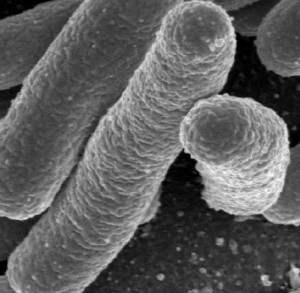Research Confirms Probiotics Treat IBS
The research evidence continues to stack up showing that irritable bowel syndrome or IBS can be treated with probiotics. Now we find recent evidence that certain species of bacteria have significant success with IBS treatments.
Irritable bowel syndrome (IBS) affects millions of people throughout the world. Somewhere between 10 and 20 percent of the world’s population suffers from IBS.
For decades, medical scientists assumed that IBS was an autoimmune disease related to ones genes. Yet research over the past two decades has confirmed that IBS is more related to our gut flora.
Yes, we are speaking of probiotic – or in the case of IBS, pathogenic – bacteria. Our gut bacteria become very intimate with our intestines. Depending upon the species of bacteria colonizing ones gut, that relationship can either produce good digestion or irritable digestion. That is, irritable bowel syndrome.
In this article
Breast-milk derived probiotic treats IBS
In a 2018 study from Korea’s Ewha Woman University and the Hallym University Sacred Hospital, researchers studied 60 IBS patients. The researchers gave half the patients a probiotic species called Lactobacillus gasseri (BNR17) for 8 weeks. They were given 10 billion CFUs per day of the probiotic supplement, spread through the day. The other half of the patients were given a placebo.
None of the patients were taking any medications for their issue.
After the eight weeks, those taking the probiotic reported significantly better symptoms. Their average abdominal pain went down from a score of 3.5 to 1.2. Their abdominal distension scores went down from 6.8 to 1.9. Their IBS symptom days over the last 10 days went from an average of 3 days to an average of 1 day. And their satisfaction levels (qualify of life scores) went up from 1.7 to 5.7 on average.
Meanwhile the researchers found a number of improvements in the microbiomes of those treated with the probiotic. This included an astonishing reduction in pathogenic bacteria and the growth of beneficial bacteria – that is, other than the probiotic supplemented.
The researchers concluded:
“From the current a randomized, double blinded, prospective, comparative clinical trial, we found that 8-week ingestions of breast milk derived L. gasseri BNR17 significantly improved the IBS-QOL in subjects with diarrhea-dominant IBS accompanied with healthymicrobiota changes, improved colon transit in some.”
IBS treated with probiotic bacteria in numerous studies
International research has confirmed that not only do probiotics significantly treat irritable bowel syndrome: Certain probiotic species treat IBS better than others, as found with the study above. And probiotics delivered to the intestines work better than those where most die in the stomach.
In fact, there have been so many studies that have confirmed this effect, that researchers are now conducting reviews and even reviews of reviews to confirm the evidence.
For example, a 2018 review of research from multiple medical schools in Spain along with the government’s Instituto de Salud Carlos III, Subdirección General de Investigación Sanitaria concluded that altering probiotic populations in the intestines was a first-line treatment for the disorder. After reviewing hundreds of studies, They discussed the various methods for clinical application. In their conclusion they stated:
“There is strong and growing evidence supporting the role of dysbiosis in the pathophysiology of IBS.”
Another review, done in 2016 was actually a review of reviews. Scientists from Italy’s University of Perugia analyzed more than 300 studies. These included clinical studies and meta-analyses of multiple clinical studies. The researchers confirmed that probiotic therapies significantly and successfully treated IBS.
They also found that probiotics provided a more assured way of treating IBS than other known therapies, including fecal transplants. Furthermore, they found that one of the main reasons probiotics were so successful in treating IBS was because they compete with and defeat bacteria such as Escherichia coli, Clostridium and Salmonella.
In a metadata study published in the Spanish Medical Journal Revista Española de Enfermedades Digestivas, researchers calculated and compared the results of ten different clinical studies on irritable bowels and probiotics. The meta-analysis found that a number of species of probiotics produced significant improvement when used to treat irritable bowel syndrome. And some species treated IBS better than others.
The research concluded:
“Some probiotics are an effective therapeutic option for IBS patients, and the effects on each IBS symptom are likely species-specific.”
This of course confirms a myriad of studies showing that particular probiotic species have different mechanisms and effects upon the intestines. It also points to the fact that IBS is related to having a lack of normal probiotic colonies – also referred to as microbiota.
The researchers computed what is called the standardized mean difference between the different treatments. SMD equates to the intervention effect – or the percentage of effectiveness of that particular treatment.
The research found that pain was specifically reduced when IBS patients were treated with Bifidobacterium breve, Bifidobacterium longum and/or Lactobacillus acidophilus. The research also determined that irritable bowel distension – a type of inflammation – was successfully treated with Bifidobacterium infantis, Lactobacillus casei, and Lactobacillus plantarum.
The research further found that all of the probiotic species tested were successful in reducing flatulence among the patients. These included Bifidobacterium breve, Bifidobacterium infantis and several other species.
Other studies confirm these findings
A much larger recent study, funded by the National Sciences and Engineering Research Council of Canada (NSERC), confirmed that pathogenic bacteria overgrowth was significantly related to IBS, and related to increased pain and chronic inflammation.
This study analyzed a total of 74 studies and 84 clinical trials involving 10,351 patients.
The results of this research also determined that specific species – and specific strains among those species – had particularly significant ability to improve IBS. Interestingly, this research also found that particular strains of Lactobacillus acidophilus improved IBS significantly, but not generic (no strain identified) Lactobacillus acidophilus. The effect of non-strain specified L. acidophilus was positive, but not as significant as certain strains.
This study also found that probiotics helped IBS patients of all ages.
Treatment doses – in CFUs or Colony Forming Units – were in the billions for successful outcomes.
Longer treatment periods also increased the effectiveness of the probiotic treatments. And multiple species were more effective than single species treatments, at 37 percent versus 27 percent effective.
In total, treatments of eleven different probiotics in different studies were able to reduce irritable bowel syndrome by an average of 45 percent, with some species more effective than others.
In this latter study, the scientists concluded:
“When choosing probiotics, the type of disease (treated/prevented) and probiotic species (strain) used are the most important factors to take into consideration.”
REFERENCES:
Shin SP, Choi YM, Kim WH, Hong SP, Park JM, Kim J, Kwon O, Lee EH, Hahm KB. A double blind, placebo-controlled, randomized clinical trial that breast milk derived-Lactobacillus gasseri BNR17 mitigated diarrhea-dominant irritable bowel syndrome. J Clin Biochem Nutr. 2018 Mar;62(2):179-186.
Rodiño-Janeiro BK, Vicario M, Alonso-Cotoner C, Pascua-García R, Santos J. A Review of Microbiota and Irritable Bowel Syndrome: Future in Therapies. Adv Ther. 2018 Mar;35(3):289-310. doi: 10.1007/s12325-018-0673-5.
Harper A, Naghibi MM, Garcha D. The Role of Bacteria, Probiotics and Diet in Irritable Bowel Syndrome. Foods. 2018 Jan 26;7(2). pii: E13. doi: 10.3390/foods7020013.
Distrutti E, Monaldi L, Ricci P, Fiorucci S. Gut microbiota role in irritable bowel syndrome: New therapeutic strategies. World J Gastroenterol. 2016 Feb 21;22(7):2219-41. doi: 10.3748/wjg.v22.i7.2219.
Ohman L, Simrén M. Intestinal Microbiota and its Role in Irritable Bowel Syndrome (IBS). Curr Gastroenterol Rep. 2013 May;15(5):323.
Ritchie ML, Romanuk TN. A meta-analysis of probiotic efficacy for gastrointestinal diseases. PLoS One. 2012;7(4):e34938.
Ortiz-Lucas M, Tobías A, Saz P, Sebastián JJ. Effect of probiotic species on irritable bowel syndrome symptoms: A bring up to date meta-analysis. Rev Esp Enferm Dig. 2013 Jan;105(1):19-36.

















